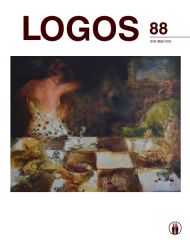Humoro Raiška Konfucijaus „Apmąstymuose Ir Pašnekesiuose“
Exploring Manifestations of Humor in the Analects of Confucius
Author(s): Solveiga ŽibaitėSubject(s): Semantics, Pragmatics, East Asian Philosophy, Philosophy of Language
Published by: Visuomeninė organizacija »LOGOS«
Keywords: Confucius; humour; irony; Chinese culture; confucian philosophy;
Summary/Abstract: This article focuses on humour in the Analects of Confucius. It argues that the comic aspect of Confucius’ personality is often overlooked in classic commentary. Even though laughter and excessive humour are perceived in Confucian tradition as a break of character, a sign of futility, excess, immaturity and inability to act according to requirements for the junzi, in his personal surroundings Confucius used a peculiar kind of humour. I present three sources of humour in the Analects: first – discontent with the political situation that renders him unable to spread his teachings as wide as he wanted and be appreciated as he deemd he deserved. Second – his deep friendship with his disciples with teasing and light mocking of one another. Third – self-deprecating humour. He seemed to be especially keen on mocking his own failures, question his own wisdom and competence. The nature of Confucius’ humour is sincere, warm and mature.
Journal: LOGOS - A Journal of Religion, Philosophy, Comparative Cultural Studies and Art
- Issue Year: 2016
- Issue No: 88
- Page Range: 217-222
- Page Count: 6
- Language: Lithuanian

